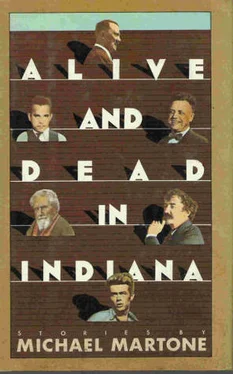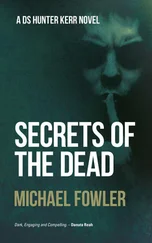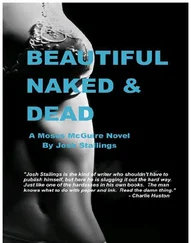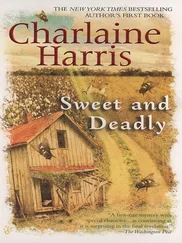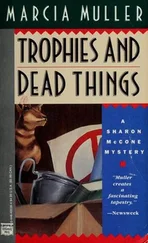Michael Martone - Alive and Dead in Indiana
Здесь есть возможность читать онлайн «Michael Martone - Alive and Dead in Indiana» весь текст электронной книги совершенно бесплатно (целиком полную версию без сокращений). В некоторых случаях можно слушать аудио, скачать через торрент в формате fb2 и присутствует краткое содержание. Год выпуска: 1984, ISBN: 1984, Издательство: Dzanc Books, Жанр: Современная проза, на английском языке. Описание произведения, (предисловие) а так же отзывы посетителей доступны на портале библиотеки ЛибКат.
- Название:Alive and Dead in Indiana
- Автор:
- Издательство:Dzanc Books
- Жанр:
- Год:1984
- ISBN:9781936873500
- Рейтинг книги:3 / 5. Голосов: 1
-
Избранное:Добавить в избранное
- Отзывы:
-
Ваша оценка:
- 60
- 1
- 2
- 3
- 4
- 5
Alive and Dead in Indiana: краткое содержание, описание и аннотация
Предлагаем к чтению аннотацию, описание, краткое содержание или предисловие (зависит от того, что написал сам автор книги «Alive and Dead in Indiana»). Если вы не нашли необходимую информацию о книге — напишите в комментариях, мы постараемся отыскать её.
Alive and Dead in Indiana — читать онлайн бесплатно полную книгу (весь текст) целиком
Ниже представлен текст книги, разбитый по страницам. Система сохранения места последней прочитанной страницы, позволяет с удобством читать онлайн бесплатно книгу «Alive and Dead in Indiana», без необходимости каждый раз заново искать на чём Вы остановились. Поставьте закладку, и сможете в любой момент перейти на страницу, на которой закончили чтение.
Интервал:
Закладка:
DEAR JOHN
I am living in Indianapolis now. Like me, it has no reason for being here. The people of the state simply wanted their capital in the middle of Indiana, paced off the distance, and brought an apprentice of L’Enfant out from Washington, D.C., to make all the same mistakes in this city’s plans. Streets, named after states, radiate from circles where monumental statuary bases are waiting for statues, waiting for someone to become famous enough to become a statue. Everywhere you look in this city you see these flat-topped pyramids, empty niches in building facades, friezes without faces, metopes without bas-relief. The circles here, too, were planned for defense purposes as if someone would wish to take a thing that was never meant to be. The theory was that batteries positioned in the circles could command three hundred and sixty degrees of the neighborhood. The airplane makes this all silly, of course. But, on the other hand, it is only from the air that you can see the plan, gain any perspective on the order here. Instead, the circles cause traffic jams, rotaries coursing with cars at all hours (late-model plum-colored Chevrolets, it seems, are everywhere), all looking for numbered streets. There are quadrant designations too — NW, SE. It is very much like an army camp, except there are no white rocks. There are boulders on people’s lawns. Blank bronze plaques are bolted on the sides of the boulders. In the summer, you can watch the husbands trim the grass by crawling on all fours around the boulders using those hand clippers. The boulders came all the way from Canada, their sides worn smooth for the plaques by the glaciers that carried them down here.
I came here looking for you. You’re not dead yet, officially. Still listed as missing in action on the Lung-hai Railroad en route to Hsuchow, China, 25 August 1945. I can’t go back there now and look for you myself. What were you doing in Anhwei Province? Another airfield in the middle of nowhere? I thought when you left Changsha for the last time you were on your way to Shantung Province to organize the North. I can’t remember what you said to me.
The woman at the American Legion headquarters here is very kind and helpful. She tells me that I mustn’t worry, that GIs are marching home all the time. Some have knocks on the head and have lost their memories. Pockets of Japanese resistance are still being turned up on nameless atolls a dozen years after the surrender. There are prisoner exchanges all the time. Priests stumbling out of the jungle. I have pretty much given up hope, though. I go on out of habit. I think you can keep someone alive. I keep. I still write often to your sister Betty on the farm in Macon. I tell her about her brother in China. She tells me about growing up with you in Georgia. The farm, she writes, has now been all planted with trees, just as you wanted it to be. Elm (though there is a new disease here in the States that is killing them), tulip, white pine, and, of course, birches that do not grow well since they are not native to the South. Your father still preaches. Your mother still plays the organ for him. Things would not be that different if you came back now.
I sit in the study room at the American Legion with the other women — widows mostly, though some are old girl friends like me. We all have our files, the accordion type, filled with letters from comrades, maps, commendations, canceled orders. We wait for records to become declassified, for belongings or effects or last remains to appear from the warehouse searches in Kansas City. The older women wear hats with veils. The cross-hatch of the netting makes their faces look made up out of dots like newspaper photos. They remove just the one white glove, the one from their writing hand. The other glove is specked with the crumbs from their erasures. When a regular gives up her place by the window, someone new comes to take it and stays until, a few weeks or years later, her work too is done.
In front of the American Legion Headquarters building, a mall begins, and from there it stretches four blocks along Meridian and Pennsylvania to the Post Office. There are plazas and parks. There is a hundred-foot obelisk of black Berwick granite. Around the base is a varicolored electric-lighted water fountain. There is a cenotaph, gold Roman eagles and all. Halfway down the mall is the War Memorial, a replica one-third the size of the mausoleum erected by Artemisia. There is even a light on the plateau of the stepped roof that represents the eternal flame. Scaffolds, like the ones window-washers use, hang high up along the west wall of the building. Workmen are still carving the names of the Korean dead. Watching them, I hear the sound of hammer and chisel long after I see the blow. All of the buildings around the mall are made from limestone in that New Deal style. The U’s are carved as Vs. There is, on the part of the mall that begins in front of the Legion building, a vast vehicle park and ordnance dump the Legion supervises and maintains. Rows of 37mm antitank guns, howitzers (all spiked, the breechblocks gone), files of quad.50 mounts and Bofors guns. There are a few old Shermans and Grants, even a Stuart, destined for a park somewhere or maybe to be cemented in a town square. The Legion distributes the surplus to the local posts, to be set up on stoops and front lawns next to lighted flagpoles. The guns will be trained on the part of Main Street that is most menacing. Every city will have one. They can’t all be hammered into plowshares. I can imagine a crew of drunken legionnaires scrambling from a stag, manning this fieldpiece, pretending they are walking shells toward the grain elevators. In purple fatigue caps sagging with medals, these men will crank the elevation wheel because that is the only thing that is left working, and then they’ll lob a few shells toward home, the wife, the kids.
After a day of looking for you, I walk along the rows of weapons, and if the wind is right, I hear the whistle coming from the vents of the air-cooled barrels. I smoke a cigarette, watch them carve the names. It is all drab and battleship gray. Everything that is loose has been stolen. There are chalk marks on the shields and fenders. Stars glow on the armor.
I live in Chinatown here. It is on the near south side in the shadow of the Lilly pill plants. To get there, I walk around the monument circle at Market Street and cross the Crossroads of America at Washington and Meridian. Under the railroad overpass. By John’s Hot Stew. I don’t know why I am writing this as if you will come looking for me.
Chinatown here is the type of thing you would expect. Chop suey joints above laundries or laundries above chop suey joints. Banners hang above the street. The smells of soy and dry-roasted peanuts. Taiwanese mainly. Many from the fall of the Tachen Islands. Quemoy is being shelled again. There are animated arguments at the walls where the language dailies are posted. Children dribble basketballs along the sidewalk. Wearing scarlet, they weave around their fathers. The public phones are in pagodas. The shelter signs are in Chinese.
It is not really like Changsha, though there is a jinriksha. Most people here wear black sneakers. They miss China. I can pretend I am still there — bow to the men in sleeveless shirts and gray pants in my building, share silk thread with their wives, who sew all day. I can imagine when I leave in the morning, I am on my way to the Yale-in-China Hospital again. Taste tea in a coffee cup. And I wait for you. At night in bed, I hear a train slam into the station. It is the Japanese shelling.
There is a man here who says he remembers you when you preached in Chekiang Province. He is still a Christian and insists I go to church with him, an A.M.E. in the next ward. He says he was told you joined the AVG, that all China has heard of you. He tells me your Chinese is perfect. He would not be surprised if you were still alive and preaching to many converts. Mao himself would not be able to tell you were American. I think the man says what he thinks I want to hear; he brings me fried bananas and takes me uptown on the bus to the cathedral to play Bingo.
Читать дальшеИнтервал:
Закладка:
Похожие книги на «Alive and Dead in Indiana»
Представляем Вашему вниманию похожие книги на «Alive and Dead in Indiana» списком для выбора. Мы отобрали схожую по названию и смыслу литературу в надежде предоставить читателям больше вариантов отыскать новые, интересные, ещё непрочитанные произведения.
Обсуждение, отзывы о книге «Alive and Dead in Indiana» и просто собственные мнения читателей. Оставьте ваши комментарии, напишите, что Вы думаете о произведении, его смысле или главных героях. Укажите что конкретно понравилось, а что нет, и почему Вы так считаете.
